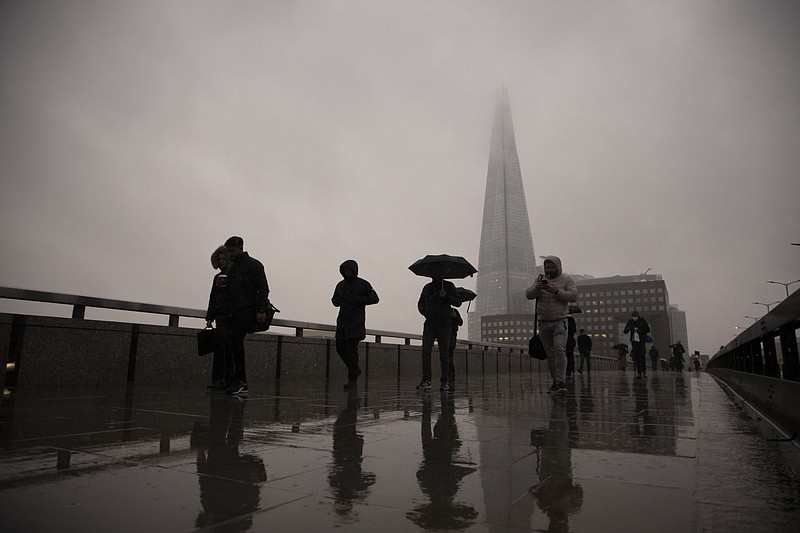Foreign workers are leaving Britain at the fastest pace since World War II, presenting a challenge to an economy already roiled by Brexit and the coronavirus.
London alone has lost 700,000 people over the past year, recent research suggests. The implications are profound for the Treasury, landlords and the chances for a recovery from the worst slump in three centuries.
"The risk is that people don't come back, so we have skill and labor shortages, and we lose some output, growth and tax revenue permanently," said Jonathan Portes, a King's College London economics professor who estimates well over 1 million foreign-born workers may have left. "Given how migration has driven economic growth, particularly in London, that could be bad news."
Chancellor of the Exchequer Rishi Sunak and the Office for Budget Responsibility will confront some of those realities this year and perhaps in the budget Wednesday. For the Treasury, fewer migrants ultimately means less economic output and tax revenue to pay down the huge debts accumulated to help people and businesses cope with covid-19.
A turn in migration flows would reshape the politics of immigration after a decade of government efforts to limit the numbers arriving. Longer term, it could also exacerbate the demographic problem the U.K. shares with countries from Germany to Japan: how to support a rapidly aging population.
A theoretical scenario where migration dries up instead of rising by around 100,000 a year could cost the U.K. about 1% of output after five years. That would raise the budget deficit by 0.7% of gross domestic product, based on a rule of thumb used by the OBR, the U.K. fiscal watchdog.
The loss of foreign workers may actually be a boon in the short term. Unemployment is rising, and swathes of the economy including hospitality remain closed for at least six weeks. Once those restrictions ease, a post-Brexit immigration system that makes it harder for EU citizens to settle in Britain means that jobs previously done by low-skilled migrants may be harder to fill.
"Those jobs won't be eligible for long-term work visas," said Madeleine Sumption, director of the Migration Observatory research unit at the University of Oxford and an adviser to the government. "The government has made it clear it doesn't want to allow a lot of exceptions."
It's impossible to say exactly how many people have left. That's because the pandemic has limited government data collection. Statisticians are relying heavily on the Labour Force Survey, which has suggested the foreign-born population shrank by almost 900,000 to 8.3 million in the year through the third quarter.
Some say the true picture may be far worse. In a blog last month for the government-funded Economic Statistics Centre of Excellence, Portes and co-author Michael O'Connor put the drop at about 1.3 million people. London, they calculated, may have lost about 8% of its population.

